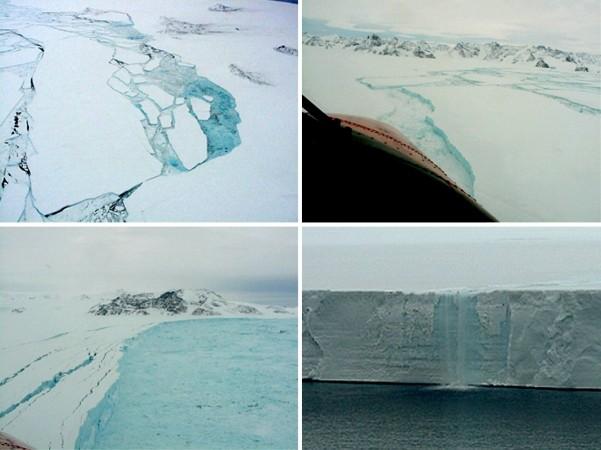
Climate scientists are stunned at the latest findings that suggest the previous month May was the 13th month in a row to break previously held temperature records.
Apart from the soaring heat recorded in February and March, alarm bells are ringing continuously in the form of extreme weather events, ranging from vanishing Arctic sea ice, droughts in India, the vast bleaching of the Great Barrier Reef and flash floods in the UK and in Paris.
"It is in my view highly unlikely that we would be seeing record drought, like we're seeing in California, record flooding in Texas, unprecedented wildfires in western North America, and the strongest recorded hurricanes in both the northern and southern hemisphere were it not for the impact of human-caused global warming," Professor Michael Mann of Penn State University is quoted saying by the Guardian.
Killer heat waves are also increasing exponentially, said professor Stefan Rahmstorf of Potsdam Institute for Climate Impact Research in Germany.
More than 300 people in India have been killed in recent heat waves.
"Our analysis of monthly heat records around the globe shows they now occur five times as often. It is those monthly heat records that are representative of heatwaves that last for weeks on end and they are ones that take the highest death toll." He said.
Extreme weather activity also refers to the record high temperature of 51 degrees Celsius in India and a record warm autumn in Australia, as well as other broken records in the US.
"The numbers are completely unprecedented, they really stick out like a sore thumb." Said Adam Scaife, who works at the Met Office in the UK.
Every New Year is claiming the title of the hottest ever, which scientists believe probabilistically speaking, a one in a million chance. "Including this year so far, 16 of the 17 warmest years on record have been since 2000 – it's a shocking statistic," Scaife said.
Another shattered record is the amount of carbon dioxide in the atmosphere, the rate at which humanity is emitting CO2 is the fastest for 66 million years.
"We know from Antarctic ice cores that go back almost a million years that CO2 was never even remotely as high as this," says Rahmstorf
The weather phenomenon known as El Niño has also contributed to the increase in temperatures apart from rising CO2 levels.
El Niños are caused due to cyclical changes in ocean temperatures over decades and ultimately release the stored heat, therefore impacting temperatures and weather around the globe.
El Niño is set to enter its opposite phase, called La Niña which indicates that 2017 may not be a record year but it is still likely to be hotter when compared to other La Nina years.
"These [records] are very worrying signs and I think it shows we are on a crash course with the Paris targets unless we change course very, very fast. I hope people realise that global warming is not something down the road, but it is here now and it affecting us now." appealed Rahmstorf.










